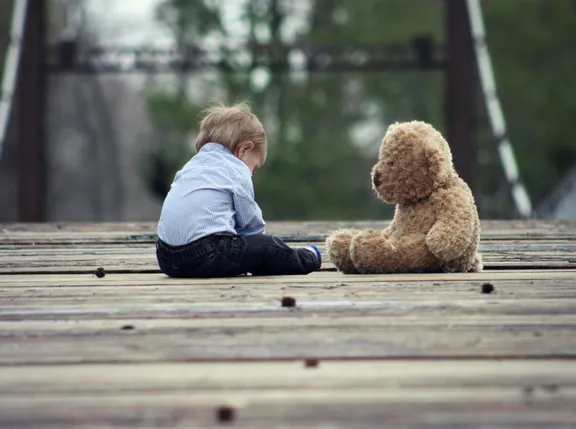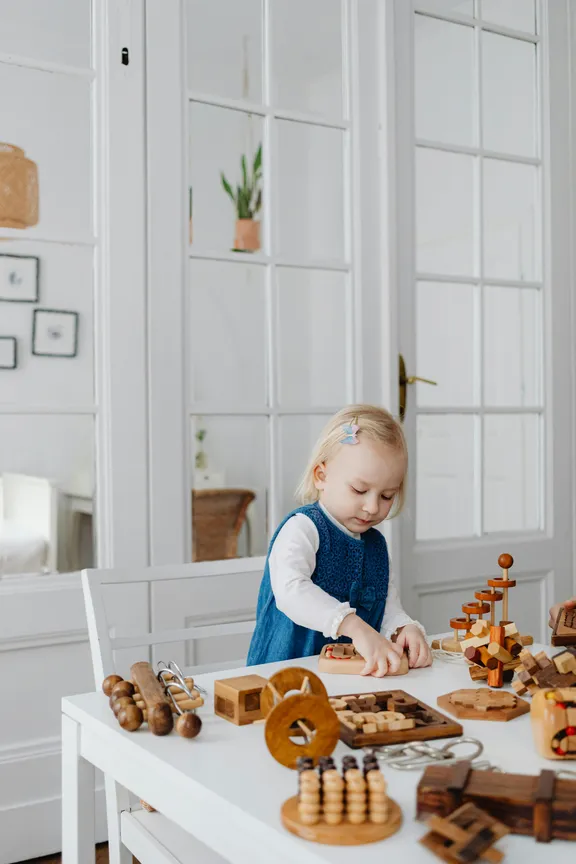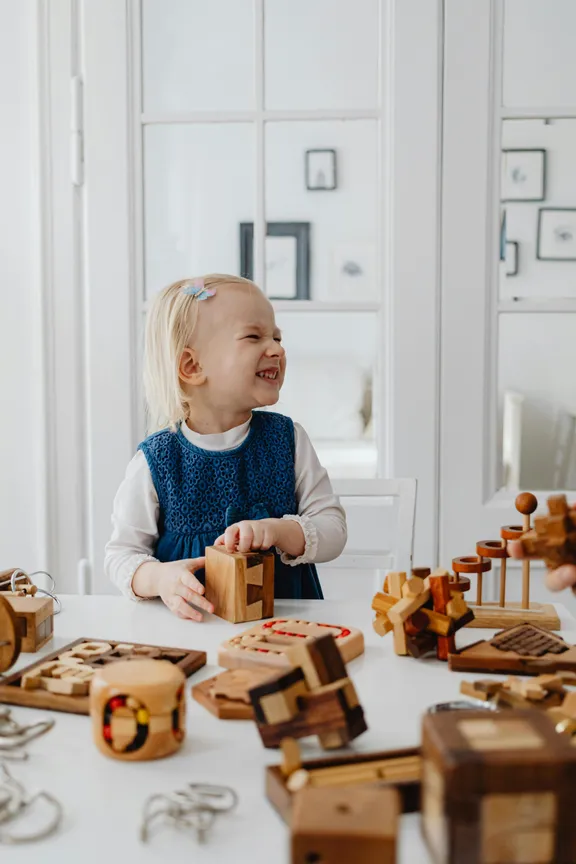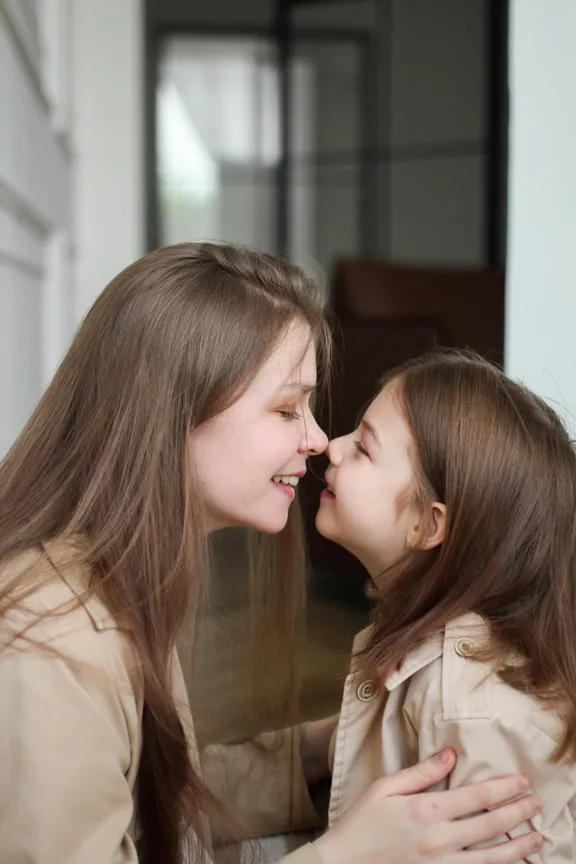Samantha feels the sting of unfairness every time she visits her parents. They shower her nephews with expensive gifts, while her daughter, Maddie, gets cheap toys. This is happening because her parents judge her based on income, and it hurts deeply. But one day, her in-laws decide to step in and teach them a valuable lesson. Will this action change Samantha’s life?
Why do some families treat their children differently? Many have wondered this, but do we always have an answer?

A sad child sitting next to a teddy bear | Source: Pexels
As a mother, it’s painful to see your child being treated differently. Some families give more to one child and less to another, which hurts both the parent and the child. It’s hard to explain to a little one why another child gets more gifts or attention.
Confronting family about this is difficult and can cause tension. Trust me on that. But every child deserves equal love and care.

A happy mother with her child | Source: Pexels
So when I saw my little girl feeling left out, I knew I had to do something. But my in-laws beat me to it. I wanted to share this story with you because sometimes, you find a family in unexpected places, and their words of support and love can mean a lot.
So, it was a regular morning. That’s how it all started. I sat on the couch, watching my daughter play with her dollar store toys.

A child lost in her toys | Source: Pexels
Her giggles filled the room as she built a tower with plastic blocks. My heart ached.
My parents always gave my nephews expensive gifts like Lego sets, iPads, and trips to Disneyland. Maddie, on the other hand, only received small, cheap items.
“Mommy, look at my tower!” Maddie called out, her eyes shining with pride.

A happy little girl busy playing | Source: Pexels
“That’s wonderful, sweetie,” I replied, forcing a smile. I couldn’t let her see how much this bothered me.
I thought about my sister and how our parents always rushed to help her. If she needed babysitting, they’d be there in a heartbeat.
But when I asked for help, I had to give them a two-week notice, and even pay them. The disparity in their treatment was glaring, and I worried about the impact on Maddie.

A person holding a pen and counting cash | Source: Pexels
“Why don’t we ever go to Disneyland like Johnny and Peter, Mommy?” Maddie asked one day, her innocent eyes searching mine for answers.
“It’s not in our budget right now, honey,” I said gently. “But we’ll have our adventures, just you and me. I promise.”
As Maddie played with her toys, I sighed deeply. It wasn’t fair. I worked hard to provide for her, but it seemed like my efforts were never enough in my parents’ eyes. The favoritism hurt not just me but Maddie, too.

A happy mother and daughter | Source: Pexels
The thing is, my husband and I are slightly more well-off than my sister’s family. Because of this, my parents do more for them than they do for us. But I knew that wasn’t right.
It was hurting my daughter, and a seven-year-old doesn’t deserve to be treated like that.
But even though I knew I had to address this with my parents, the thought of confronting them filled me with dread. How could I make them see the impact of their actions without causing a rift in the family?
I got my answers at our next family gathering.
We were in my parents’ backyard, enjoying a rare meetup with both sets of grandparents. Maddie’s eyes lit up when she saw the trampoline where her cousins were playing.
“Mommy, can I use the trampoline?” Maddie asked hopefully.
Before I could respond, my dad’s booming voice cut through the air. “No, it’s for your nephews!”
Maddie’s face fell, and she stomped away, muttering, “This is why I like the other grandma and grandpa more!”
The air grew thick with tension. My parents’ faces turned red with anger. “Maddie, don’t be sassy!” my mom snapped, glaring at her.
I was shocked. How could they talk to her like that?
But before I could respond, Emily and James, my in-laws, stood up.
Emily spoke first, her voice firm but calm. “Maddie is just as deserving as your grandsons. She’s your granddaughter, too, and she should be treated equally. How can you treat her differently?”
My parents’ eyes widened in disbelief. They hadn’t expected this.
“Yes, we’ve observed this favoritism for a while now,” James added, “and it’s unacceptable. Maddie should not be made to feel less important because of her parents’ income. Did you really think we didn’t know about this?”
I watched, grateful but nervous, as my in-laws defended Maddie.
“This isn’t about income, James,” Emily continued, her eyes never leaving my parents. “It’s about love and fairness. All the grandchildren should feel valued and loved. I don’t know how people can do this to little ones.”
My mom opened her mouth to argue, but Emily cut her off. “If you continue to treat Maddie this way, you’re not just hurting her. You’re damaging your relationship with Samantha and with us. Family should mean equality and support!”
The backyard fell silent. Maddie, who had been standing nearby, looked up at me with hopeful eyes.
I pulled her into a hug. “It’s going to be okay, sweetie,” was all I could say.
Meanwhile, my parents looked taken aback. My dad stammered, “Well, it’s just that… that the boys use it more, and it’s expensive. Maddie might break it.”
“And why would you think Maddie would break it?” Emily responded firmly. “She’s a child, just like your grandsons!”
“If you cannot treat all your grandchildren equally, then maybe you don’t deserve the privilege of spending time with Maddie,” James continued. “She deserves to feel loved and valued by all her family.”
I could see the confusion and hurt in my parents’ eyes as they muttered about the expensive gifts Maddie received from my in-laws.
Emily’s voice cut through the murmurs. “Can you hear yourselves? This isn’t about money; it’s about love, care, and spending time with Maddie! How hard is it to understand that?”
James turned to Maddie. “Let’s go cook ginger cookies and make lemonade, honey,” he said. “There’s no point talking to these people.”
Maddie’s face lit up, and she squeezed my hand. I nodded, giving her permission to go. She skipped off with Emily and James, leaving my parents stunned.
Eventually, my mom looked at me, her eyes pleading. “Samantha, we didn’t mean to hurt Maddie.”
I took a deep breath, feeling a mix of relief and sadness. “Mom, it’s not just about today. It’s about every time Maddie feels less important because she doesn’t get the same love and attention as her cousins.”
My dad sighed, rubbing his forehead. “We didn’t realize…”
“Well, now you do,” I said softly but firmly. “Please, think about how your actions affect Maddie. She loves you and wants to feel included, just like the other kids.”
From that day on, my parents consciously tried to treat Maddie with the same love and attention they gave her cousins. They started bringing thoughtful gifts for her, not just small, cheap items. More importantly, they included Maddie in all family activities.
One afternoon, I watched as Maddie bounced on the trampoline, laughing with her cousins. It had become a favorite spot for all the grandchildren. The sight warmed my heart. My parents were trying, and it was making a difference.
Emily and James stood nearby, watching with proud smiles. I walked over to them, feeling a surge of gratitude. “Thank you,” I said, my voice full of emotion. “I don’t know what we would have done without your support.”
Emily hugged me. “Families should stand up for each other. Maddie deserves to know she’s loved by everyone.”
James nodded. “We’re just glad we could help.”
Seeing Maddie thrive, knowing she was equally cherished by her entire family, brought me immense joy. She seemed happier and more confident.
I was happy that my parents had learned a valuable lesson about fairness and love, and their efforts to make amends strengthened the bond between us all.